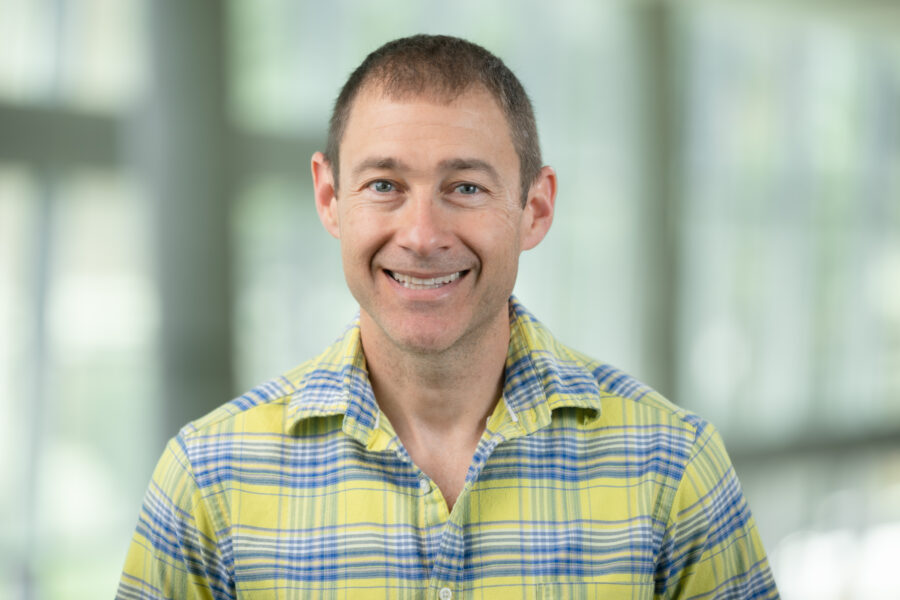Since its establishment at the University of Nebraska Medical Center in 2001, the NE-INBRE program has captured the excitement, imagination, and vigor of students across Nebraska.
NE-INBRE is the only two-year program in the state that supports students financially in their pursuit of scientific research.
NE-INBRE furthers the science of undergraduate faculty by bringing them together with researchers at the state’s premier professional schools (UNMC, the University of Nebraska-Lincoln and Creighton University Medical Center).
Supported by a $17.2 million grant from the National Institute of General Medical Sciences of the National Institutes of Health, NE-INBRE is one of the state’s largest grants.
More than 550 undergraduates have taken part in NE-INBRE at an investment of $1.5 million per year.
A cooperative program that involves faculty and students at eleven participating institutions throughout the state, NE-INBRE has created opportunities that never would have been possible. Learn more about two amazing examples of former NE-INBRE Scholars who were keynote speakers at the 2023 NE-INBRE annual conference.
Jamie Gilmore, PhD, is a senior scientist working at Moderna on the preformulation team for the COVID-19 vaccine. Dr. Gilmore was part of the NE-INBRE program at Wayne State College from 2003 to 2004.
A 2011 alum of UNMC, Dr. Gilmore said, “The INBRE program was my initial introduction to performing research in a lab environment. For me, the experience was a very positive one and confirmed my desire to pursue a career in scientific research. Additionally, it allowed me to develop basic hands-on laboratory skills, which were invaluable for my subsequent acceptance into and ability to navigate through graduate school. Many of the basic skills I developed during this time are still relevant to what I do in my current job, and INBRE gave me the start I needed to guide me to where I am today.”
Harim Won, PhD, was an NE-INBRE Scholar at the University of Nebraska at Omaha from 2017 to 2018. Today he is a biotech venture capital investor at Osage University Partners based in Philadelphia
Dr. Won said “through INBRE, I was equipped to complete my doctoral training at Harvard, further opening the door for me to complete internships at Vida Ventures and Flagship Pioneering – something that would have been more difficult to do outside of major biotech hubs. INBRE was a catalyst that unequivocally improved my trajectory early in my career, enabling a greater magnitude of impact than if I had worked to develop as scientist later on. I credit the mentorship and access to resources I received through the INBRE program as being key in making the work I do today possible.”
Through NE-INBRE program incentives, 22 undergraduate faculty are able to establish laboratories, and create opportunities for more students to participate in research. Groundbreaking research provided by NE-INBRE funding has helped Paul Denton, PhD, UNO; Michael Moxley, PhD, University of Nebraska at Kearney; and Annemarie Shibata, PhD and Julie Strauss-Soukup, PhD, both with Creighton University, receive National Institute of General Medical Sciences of the National Institutes of Health R15 grants. Job well done!
NE-INBRE also provides funding necessary to buy equipment to establish or support existing core facilities, a crucial component of the program. There are three NE-INBRE supported core facilities covering everything from genomics and bioinformatics to advanced microscopy at the disposal of faculty and students. The services provided by these core facilities attract new talent to Nebraska and enable researchers at the research and undergraduate campuses to be more competitive in applying for federal funding.
And there are many other ways the NE-INBRE program has contributed directly or indirectly to the success of students and faculty, from funding available to travel to conferences, to providing seminars on grant writing, to access to Endnote and other widely used programs, as well as mentoring of undergraduate faculty and students, the online bioinformatics course, and community outreach.
We are proud to be part of a unique program that establishes a pipeline of undergraduate students interested in scientific research and matches those students with researchers. We also are proud of how NE-INBRE is a direct investment in the future of biomedical research in the state and the nation.
